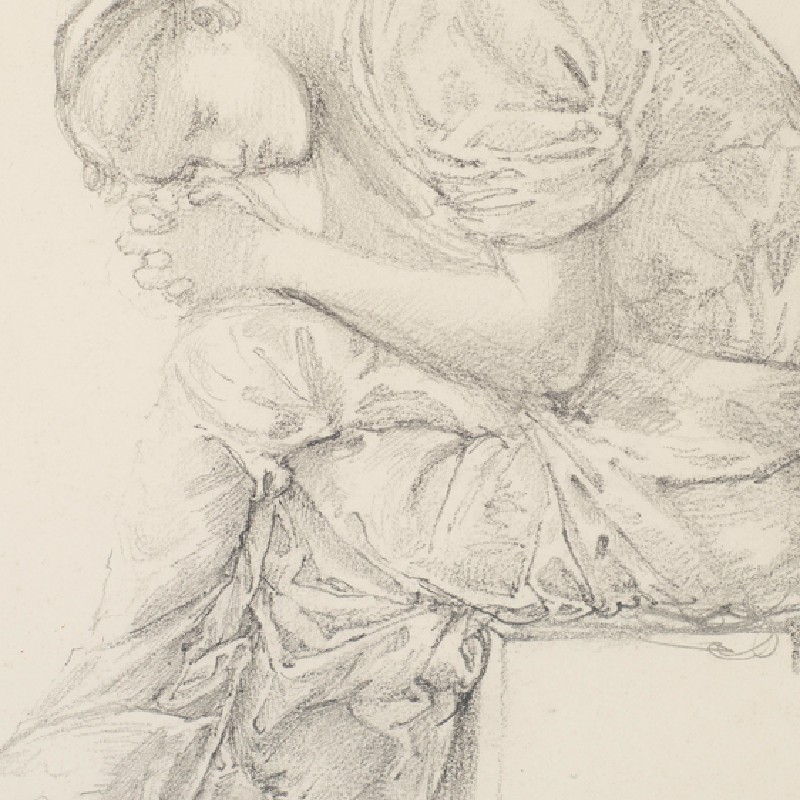
Edward Burne-Jones
Edward Burne-Jones was a British, Pre-Raphaelite artist who, in the late 19th century, worked across mediums including mosaic, tapestry, and jewelry, but is best remembered for his stained glass work, drawings, and paintings. While studying at Oxford, Burne-Jones befriended William Morris, a life-long close friend (who would later have an affair with Burne-Jones’ wife). Morris and Burne-Jones shared a love of Medieval art and literature. A classic Pre-Raphaelite, Burne-Jones’ figurative paintings strayed away from Naturalism (which was lauded in his era), striving instead to emulate Medieval sensibilities by creating static, flat images with imprecise narratives. The idea was that his works were not extensions of the viewers’ reality, but that his subjects were contained in their own, aesthetically beautiful, complex universe that viewers had to work hard to understand. Burne-Jones’ work was controversial: he was simultaneously bashed by critics and excluded from exhibitions, and lauded by elite viewers including the Prime Minister, who granted Burne-Jones Baronetcy. Today, his work is remembered fondly and studied for its innovative approach.
Playlists (1)



Birmingham Museum and Art Gallery: Curated Picks
Related artists

Winslow Homer
American, 1836–1910
George Stubbs
British, 1724–1806